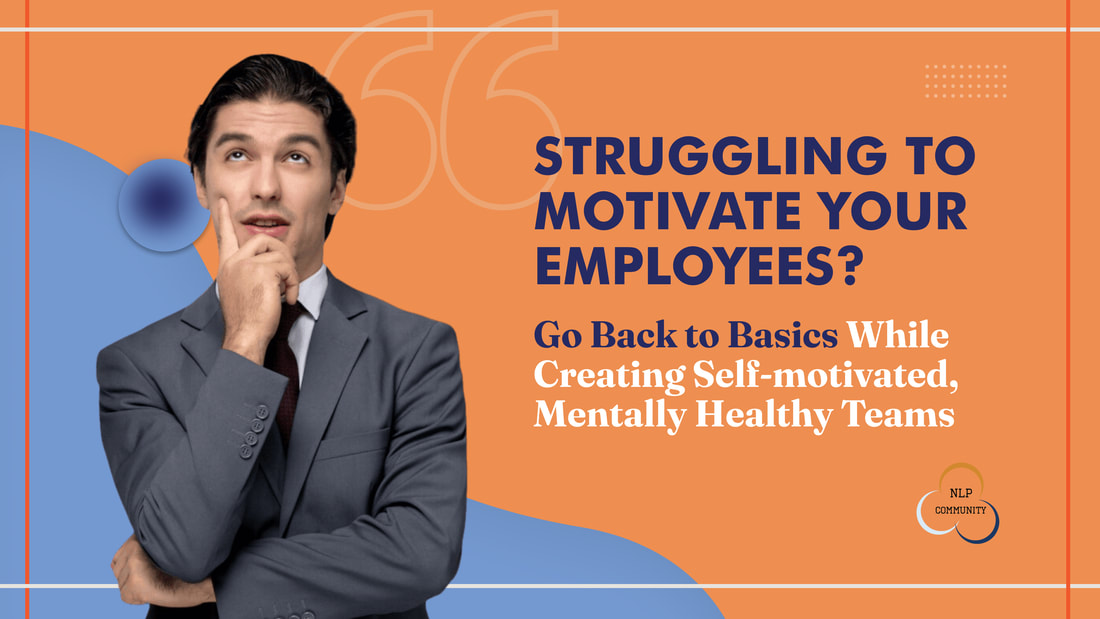|
A client recently came to us looking especially weary. He was tired of having to motivate his employees. “Why can’t they be self-motivated?” he asked, frustrated.
Frankly, that is a question many leaders ask. However, instead of lamenting your employees lack of motivation, take steps to solve the problem. If a large number of your employees are waiting for your cue to perform better you probably have unresolved fundamental issues. Moreover, you’re probably suffering from burnout from having to constantly propel your employees to action while managing other responsibilities. Clearly, this makes for an unhealthy work environment. The solution lies in going back to basics. Start with these steps: Elevate your employees’ mental states for purposeful execution of roles Ask yourself why your employees are unmotivated. Chances are, they don’t feel as if they have a stake in the organisation’s success. This requires you to discover each person’s career objectives and aspirations. Once you’ve identified these, align them with the organisation’s goals. Being able to show congruence in terms of purpose will go a long way towards motivating employees and sustaining their motivation. Connecting individual purpose with organisational purpose takes skill. Firstly, break down your possibly lofty organisational purpose into actions that will make the purpose achievable. Too abstract a purpose can cause people to disengage. Secondly, ask employees to think about the following questions:
Cultivate healthier professional relationships to engender psychological safety Many organisations engage in personality profiling, but most don’t use results from such tests constructively. The goal should be to meet people where they are, then take them on a journey to fulfil both their goals and the organisation’s goals. In order to meet people where they are, leaders have to be skilled at building rapport and listening, among other things. Do you allow your employees to speak honestly without repercussions? Do you allow them to make mistakes and learn from them without career-destroying consequences? Cultivating an environment where people feel psychologically safe not only elevates mental health and working relationships, but also performance. If people can be honest about problems, solving them becomes easier. They’ll feel like they have a stake in the organisation and can lead change even as individual contributors.
0 Comments
Your comment will be posted after it is approved.
Leave a Reply. |
SYLVIA FERNANDES
Sylvia is a qualified Neuro Linguistic Programming (NLP) Master Trainer. She started her business in Sydney and is now based in Singapore. Archives
December 2024
Categories |


 RSS Feed
RSS Feed









